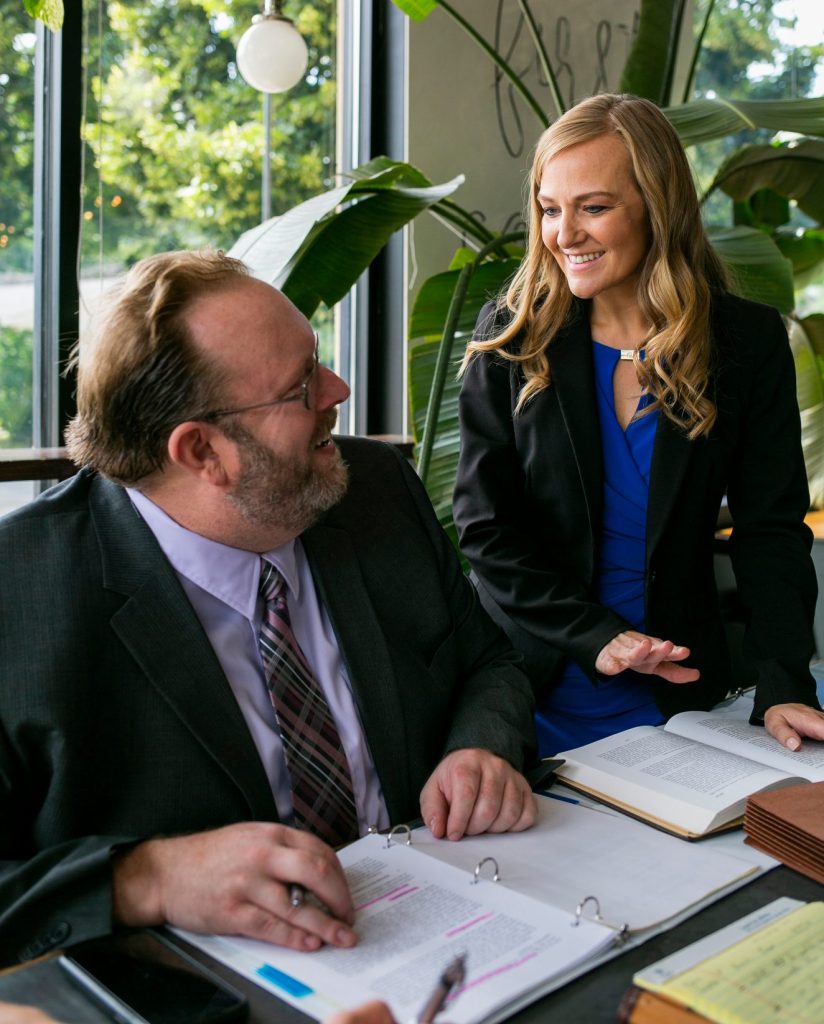
A force in appellate representation: defense and prosecution.
A trial court’s (or jury’s) decision almost always results in a desired result for only one party, leaving the other party or parties with the decision of whether to appeal. In advising clients faced with such a decision, KEW looks at practical and legal considerations, including potential outcomes for the particular case, and in certain situations, broader precedent-setting value, in order to make a thoughtful recommendation of whether to appeal a trial court’s decision. On the flip side, where a successful party is forced to defend a favorable result when the other side appeals, KEW will defend the appeal. With several successful appeals under their collective belts, KEW is familiar with both the strict procedures that must be followed in any appeal and the scrupulous legal analysis necessary to maximize a client’s chance of legal success. Other attorneys frequently refer appellate matters, which carry with them time-sensitive deadlines, to KEW, knowing KEW will review the matter promptly. KEW attorneys have represented clients in a variety of subject matters including eviction, breach of contract, fraud, civil theft, First Amendment, civil theft, legal malpractice and attorney’s fees award.
With some exception, only a final recorded judgment or order may be appealed. As simple as it sounds, determining that an issue is final and appealable can be complex and challenging but is a crucial first step in appellate practice. Whether or not something is a final order is a more complex question than it seems, but something that we determine often at KEW.
In most scenarios, a non-final order (such as denials of summary judgment or motions to dismiss or court decisions on other motions during the pendency of a civil case) cannot be appealed until a final order is issued. However, on occasion waiting to appeal the final order can be overly detrimental to a party. In such a situation, an interlocutory appeal may be appropriate. The appellate court has discretion to hear an interlocutory appeal, and such an appeal is disfavored. When appropriate, KEW will review a non-final order for whether pursuing an interlocutory appeal is in the client’s best interest.

In appealing a case, the party appealing is requesting the reviewing court to review whether the lower court or the jury properly applied the facts of the case to the law based upon the evidence admitted in the lower court. No new evidence and no new facts can be entered upon appeal. As such, most appeals involved only the submission of written briefs, no hearings, unless an appellate court requests oral argument.
The appealing party has the responsibility of filing an appeal, pursuant to a timeline established by the applicable court rules. Pursuing an appeal also requires ensuring the circuit court prepares an accurate record on appeal to be provided to the reviewing court as well as submitting briefs to address the issues on appeal. The standards the reviewing court applies to any given appeal varies depending on the issues the appealing party (or parties) raises on appeal.
A case of nearly any subject matter can be appealed, in whole or in part. For example, a party may have brought three claims in a particular case, and determine that an appeal of the trial court outcome of only one of the three claims is the best route. Other types of partial appeals may involve such issues as whether or not a party should be part of an action, whether certain evidence should or should not have been admitted, or whether a party met its legal burden on a motion brought before the trial court.
Attorneys Jessica M. Kramer and Nicholas C. Watt handle appellate matters for KEW. More information regarding whether KEW may be ale to assist you can be obtained by contacting KEW at info@kewlaw.com or 608-709-7115.